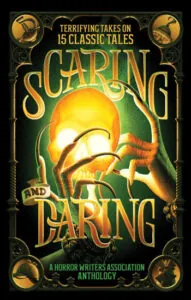The beauty of language
I just wanted to take a second and respond to a couple of emails that have come in that Carl and Kim aren’t sure how to answer. It appears some of my Spanish phrases have upset a handful of native speakers. Sorry about that. But as any native Spanish speaker knows, Spanish, much like English, is a very vibrant and colloquial language. I have never studied it formally, however, I have grown up with a ton of native speakers. I learned Spanish from my best friends who are from: Chile, Mexico, Panama, Peru, Spain and from the knee of my uncle, Carlos, as well as family friends who are from Dominican Republic, Argentina, Costa Rica and Venezuela. While I would never deign to call myself fluent in Spanish (mostly because I know that phrases don’t carry well from one country to the next), I did get every phrase from a native speaker who was born in a Spanish speaking country outside the US. Sorry if some of you are upset by the colloquial they gave me.
I get these emails from some of our French speakers, too, who don’t realize that I am extremely fluent in French (I sometimes think and have dreamed in French, and I was a French tutor in college and I have worked as a translator). But what I use in the books is *not* French. It’s Cajun, which is an entirely different language. Similar, but very, very different. For that matter, I can tell what part of the US someone is from depending on if they use the term: buggy, cart or basket. A boot and torch in the US are not the same as they are in the UK. “Less all pass a good time” makes no sense to most English speakers and is not technically correct English, but anyone who’s familiar with Louisiana will know exactly what I’m talking about. I do this to add realism to the books.
Languages are living beings and they change all the time, from year to year. Bad used to mean bad, but now bad is good, depending on context. Language is often contorted to make a point or emphasize something (in Shakespearean England a double negative was used for emphasis by even the most educated, and yet today an English speaker would “throw down a hissy” at its use). And then there are some expressions that just don’t translate such as “blowing a raspberry” which was translated as “throwing a raspberry” in one of the French editions. The word *war* in modern English is the direct opposite from Old English where the word meant to take counsel (i.e. be wary). So is precocious, which meant stupid not all that long ago, linguistically speaking. And if you handed someone a coffin and told them to get a stew in 14th century England, it would be entirely different than the image modern man sees in his/her mind. I am very sorry if that has irritated or annoyed any reader. It was not ignorance or lack of care on my part. I am very careful and do copious amounts of research for each and every book. Anyone who knows me, and anyone who has ever sat in one of my classes will be the first to tell you that I take language and history very seriously. However, I do want my worlds and people to seem as real to others as they are to me. That is the goal I set with every book. And again, I am very sorry for any discomfort or annoyance my attempt at realism and capturing the feel of a place or phrase caused any reader.
Hugs!


